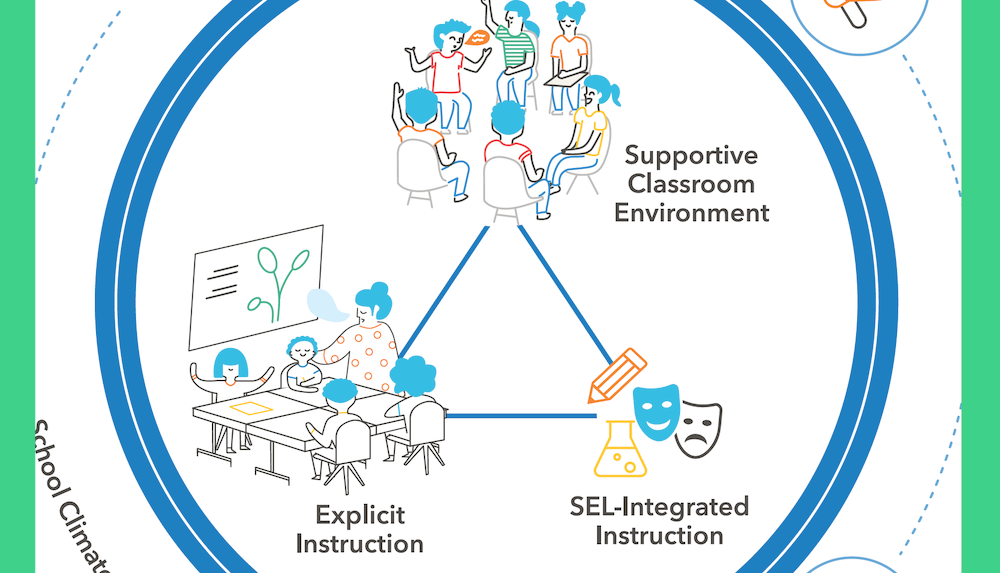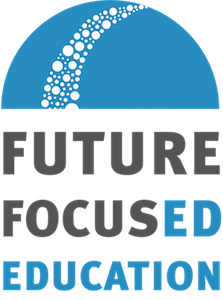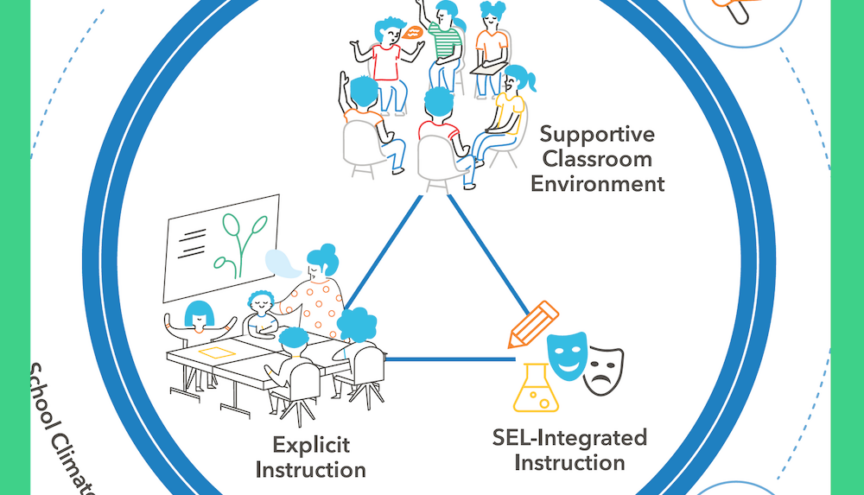What If Social-Emotional Learning Is A Key to Equity in NM?
By Amy McConnell Franklin | Founding Co-Chair SEL4NM

Why should schools care about social and emotional learning?
Previously, we simply trusted that essential skills like managing emotions or showing empathy would logically have positive impacts on performance in schools. Being able to stay focused, learn from others, reflect on and share your opinions all seemed to be helpful capacities in any learning environment. We also assumed that these were skills rather than innate characteristics.
Now the importance of SEL is clear.
Almost three decades of robust research indicate that integrating SE skills in schools not only helps children achieve academically, it also helps to:
- Mitigate experiences of anxiety and depression.
- Deter substance misuse.
- Fortify the prevention of childhood sexual abuse.
- Strengthen comprehensive youth suicide prevention.
- Promote wellbeing long into the future.
These are all outcomes we all want for all of our children.
Research is now clear that these competencies are teachable, learnable skills that become more permanent and applicable with practice.
Guided by the assertions of the Yazzie/Martinez lawsuit, SEL4NM is committed to putting these basic human skills at the service of dismantling systems that have long privileged some groups and marginalized others. Integrating social and emotional skills can help us assure that all students in our state have the skills to thrive cognitively, emotionally, socially, culturally, linguistically and academically, in school and in life.
Defining SEL and its impacts
The Collaborative for Academic, Social and Emotional Learning (CASEL) defines SEL as “‘an integral part of education and human development.”
SEL is the process through which all young people and adults acquire and apply the knowledge, skills, and attitudes to develop healthy identities, manage emotions and achieve personal and collective goals, feel and show empathy for others, establish and maintain supportive relationships, and make responsible and caring decisions.
CASEL identifies three categories of SEL:
- Personally Responsible SEL focuses on developing skills for risk prevention, individual success and personal well-being.
- Participatory SEL focuses on both skills for individual success and well-being, as well as for interpersonal relations and community building.
- Transformative SEL focuses on skills for individual success, interpersonal relations and community building, as well as skills needed to ensure democratic, fair and inclusive communities. (CASEL.org)
Across New Mexico
So what is happening across our state?
On one end of the continuum we found a small group of schools that have clearly placed social and emotional (SE) wellbeing and the intentional development of SE skills at the center of their educational philosophy and practice.
The first and primary goal of these school communities is to know each student, their families, communities, lived experiences, hopes and dreams. This goal is explicit and is supported by practices, procedures and policies. For example, recruitment, professional development, shared language and readings, all work together to fortify the capacity of the educators to intentionally establish developmental relationships with all students.
Developmental relationships are defined as relationships between students and adults that help students know who they are, envision who they might become and recognize that they have agency and choice in determining the shape of their own lives (Developmental Relationships - Search Institute). A welcoming, inclusive, and responsive school climate and culture nourishes these relationships and fosters emotional and social wellbeing growth in students and adults. SEL skills are understood as foundational professional skills, necessary for success in career, college and civic engagement.
On the other end of the continuum, SEL is perceived to be a program, taught in a particular class, usually advisory. It is an isolated, new add-on, a required component of the Multi-Layered Systems of Support which is primarily focused on providing services to students experiencing increased levels of distress at a particular period of time and needing intensified social and emotional support.
Most schools lie somewhere along this continuum. Understanding of social and emotional learning is evolving from an isolated course to a way of being, a philosophy that is modeled and embodied by all, as well as a set of life skills.
A Case Study: Zuni High School
The evolution of SEL at Zuni High School (ZHS) offers important insights. Seven years ago the District embarked on a journey to purposefully change the school culture and climate. They contracted services with the Green Schools National Network (GSNN) and a component of this process was embedding SEL.
Additionally, GSNN provided on-going professional development, supported on-going monitoring and evaluation with school climate surveys and was eventually instrumental in the development of the local SEL curriculum.
ZHS initially purchased a ‘canned’ SEL Curriculum. It soon became evident that the lessons, context and role models of this program had little relevance to the lived experiences of students, teachers and the community.
The ZHS Team then replaced this curriculum with one that had been expressly created based on realities of young peoples living in Zuni, but 40 years earlier. Again, the teachers and students found the content, examples and skills being taught to be outdated, dark and irrelevant to the needs, strengths, and challenges of current realities.
The decision was therefore made to create their own local SEL curriculum rooted in three sources:
- Competencies identified as essential qualities of a Zuni Graduate (see Zuni Graduate Profile)
- Core values of the A:’Shiwi culture
- 5 core competencies identified in the CASEL model: self awareness, self regulation, social awareness, relationship skills and responsible decision making.
In the Fall 2021, a team of high school counselors, teachers and several support staff in collaboration with GSNN, and with the support of the Director of Instruction and Curriculum, Mr. Lewis and Principal Donald Sparks, began creating original SEL lessons. To date there are over 200 daily lessons.
These lessons were first implemented in the school year 2021-2022 during Zuni High School and Twin Buttes Cyber Academy "T-Bird and Panther times". In this daily 30-minute period, 8-16 students meet with their mentor-teacher to check in on emotional, social and academic wellbeing, to learn and practice social and emotional skills.
The check-in process helps to build trustworthy relationships—student to teacher, teacher to student, and student to student. Teachers do not need to prepare the SEL lessons in advance. They simply open the link and implement the prepared daily lesson. Mentors stay with their mentees throughout their four years of high school.
This year, two teachers slated for retirement chose to continue teaching in order to see their mentee group graduate from high school. The goal is for each student to have a healthy relationship with at least one adult. It is critical that all teachers understand that they are modeling a healthy relationship so that regardless of what is happening in young people’s lives outside of school, at least in school they have this reliable, healthy relationship with an adult.
Experiencing one developmental relationship is identified as a key factor for healthy development (Search Institute). In addition to experiencing a dependable, healthy relationship with an adult, in the daily T Bird and Panther time students are able to experience a sense of belonging in school, to explore their multifaceted identities, build agency, recognize and pursue their own interests, and practice collective problem solving skills.
All of these capacities in turn help prepare students to imagine, design and execute a Capstone Project, which in turn reinforces SE skills. SE skills are also foundational professional and workforce skill sets which are further reinforced through work based learning, internships and the processes of preparing for life after high school.
According to school counselor, Ms. Dawn Eriacho, “The skills in the CASEL model bring to life the A’Shiwi core values’ and ‘You cannot have a successful Zuni graduate without SEL.”
Developing culturally affirming social and emotional life skills is a core part of human development. The ZHS students are explicitly supported in moving along this developmental path through their relationships and through the SEL curriculum embedded in T Bird and Panther time.
While there is not yet 100% buy in by the adults, support for SEL has grown as the adults deepen their understanding of the goals of culturally affirming SEL and have seen the positive impact on learning and decision making, on wellbeing, preparedness, hope and agency when the students proactively engage and practice essential life skills aligned with and reflective of their culture. The ZHS team actively seeks feedback on the curriculum and how it is received by students and teachers. The curriculum is designed to be edited in response to the experiences of the teachers and students as they implement this innovative approach.
When asked what she would call SEL skills if she did not use the term “SEL,” Dawn responded without missing a beat, “A way of life.”
Amy McConnell Franklin is the Founding Co-Chair of the Social and Emotional Learning Alliance for New Mexico (SEL4NM.org). SEL4NM is celebrating its 2nd anniversary as a state affiliate of the national organization Social and Emotional Learning Alliance for the US (SEL4US.org).


